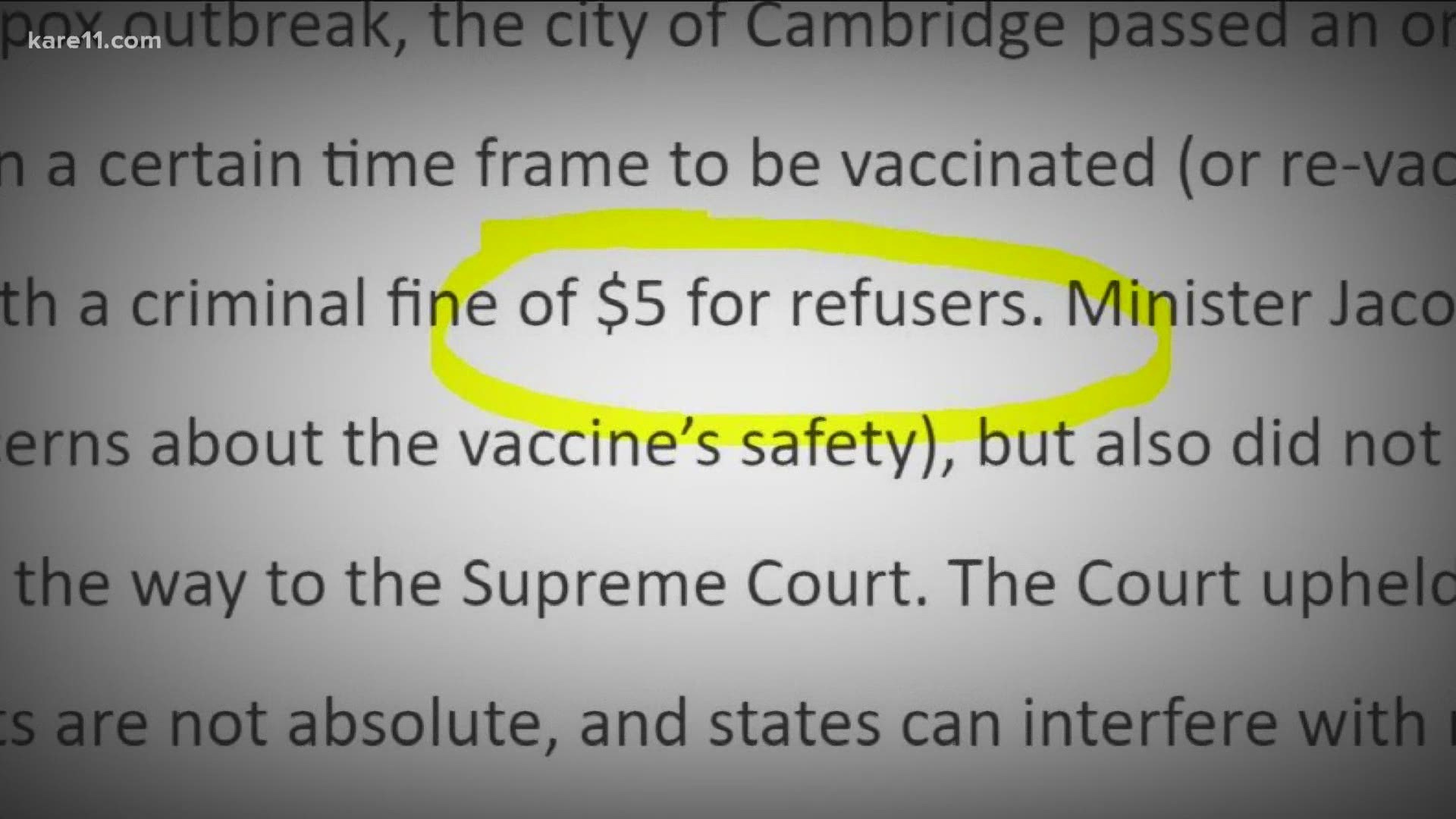MINNEAPOLIS — Gov. Tim Walz made it clear on Tuesday in his vaccination roll-out announcement that there will be no vaccination mandate.
He said he will simply rely on the goodness of Minnesotans to protect themselves and others by getting vaccinated, when it comes their time.
But this got us thinking – can governments even do such a thing?
The short answer, "Yes," but this requires a history lesson.
The year is 1901 and the smallpox epidemic is sweeping the Northeast. In Cambridge, Massachusetts, city officials decide to make the smallpox vaccine mandatory. Those who decline, are subject to a $5 fine.
Henning Jacobson, a clergyman in the area, declines and refuses to pay a fine of what would be around $150 in 2020 dollars.
"He refused, as did a few others," University of Minnesota Professor of political science and law, Dr. Timothy R. Johnson said. "They were fined with the $5. He sued in court, went all the way to the Massachusetts Supreme Court, he lost there, and then filed to the U.S. Supreme Court."
Born was Jacobson v. Massachusetts. Dr. Johnson said Justice John Marshall Harlan cited "police power of the state" to protect public health and safety as the main reason behind the 7-2 decision to say that states can indeed mandate a vaccine in this case.
RELATED: Live updates: Minnesota to receive enough vaccine over next month to inoculate 183,000 people
"What Justice Harlan reasoned in the Jacobson case is that, you're right, we do have liberty to our own body unless what has happened with your body could harm everybody else," Johnson explained. "So, certainly, you and I both have the liberty to do whatever we want with our body. If I'm going to be the only person who doesn't get the smallpox vaccine, I could then spread smallpox to everyone around me and that's going to harm the entire society. That's sort of where your liberty ends."
He said he puts it like this to his students quite often.
"The liberty of my body ends where your nose begins," Johnson said. "I can certainly swing my arms anywhere I want, but once it hits your nose, I don't have the liberty to swing my arm around anymore."
Now, applying this to 2020 and beyond, although Gov. Walz said he will not mandate the vaccines when they become available, there certainly will be arguments that surface against inoculation.
However, the more applicable question may be whether employers can mandate vaccines.
"There is pretty clear evidence that employers absolutely have the evidence to say, 'You need to take a drug test, you need to abide by particular rules like saying you won't sexually harass someone when you're at work,'" Johnson said. "There's a whole host of regulations that you sign off on. It is pretty clear that most employers also say there are certain vaccines you need to have to work in our shop."
When it comes to increasing vaccination participation rates, Johnson said incentives might work better than a mandate. Like employers offering free meals, or a chance to win a gift card if you get vaccinated etc.
Gov. Walz's administration spokesperson said because the vaccines are coming to us under an Emergency Use Authorization, the state is actually not allowed to mandate them.

